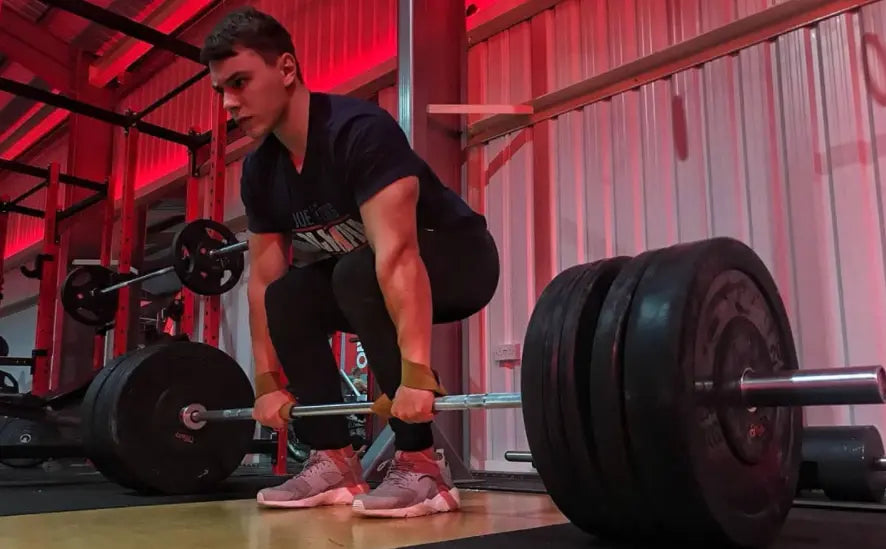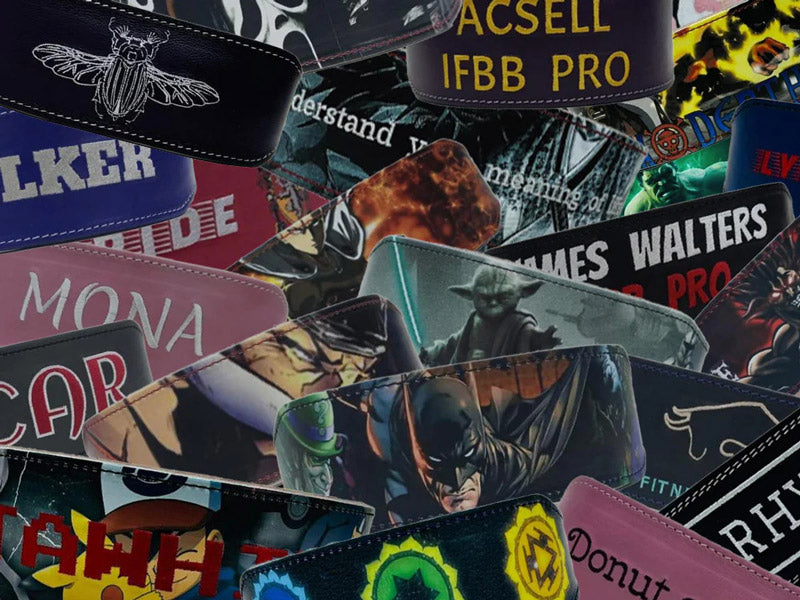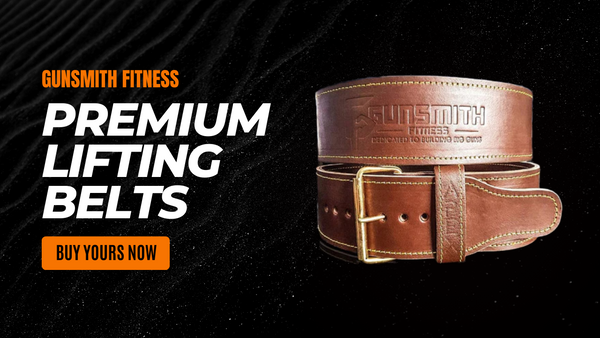
Everything You MUST Know About Weightlifting Lifting Straps
Weightlifting lifting straps may be the most misunderstood piece of equipment commonly found in the gym. Becoming increasingly popular, these lifting straps offer major benefits for athletes, powerlifters, and more. But only when used properly.
Sadly, most gym goers, even serious ones, don’t use this gym accessory correctly. Why? Well, I’d like to think because they’ve never been properly informed on how to use wrist wraps to benefit their swole, size, and strength.
That’s what I’m here for. To teach and educate individuals how they can benefit from using Gunsmith Fitness accessories to achieve their gym goals in record time - while staying injury-free.
What Are Weightlifting Lifting Straps?
If you’re unsure exactly what they are, weightlifting lifting straps are a workout accessory designed to relieve pressure on your wrists and forearms when moving large amounts of weight. You wrap the straps around the bar or dumbbell to take pressure off of your grip when the weight is heavy.
The thought behind using straps is that your wrists and grip strength will fatigue and fail much faster than other large muscles groups you’re training. Through the use of straps, you can train these larger muscles to failure because your wrists and grip won’t fail before the other groups do.

Why Use Weightlifting Lifting Straps?
Now, that we know what weightlifting lifting straps are, let’s take a look at why people use them. Gym addicts argue over the use of accessories all the time. Some say using an accessory is cheating. Others claim not using them ensures you leave weight and gains on the table in many of your main lifts.
The reality is somewhere in-between. Accessories like weightlifting belts and wrist wraps can be exceptionally useful in certain situations, while hindering development and strength gains in others. So, both schools of thought can be correct.
What should you do if you’re dedicated to the iron? How can you use wrist wraps to aid your swole? Only use weightlifting wrist wraps in situations like:
-
Training Low Reps, High Weight
Never, ever use your wrist straps when lifting more than four reps. They simply aren’t necessary in such situations, unless you’re training through an injury.
Weightlifting wrist wraps offer huge benefits when training in the 1-4 rep range. Your wrists and grip can fail in such situations, which ensures you cannot train your larger muscle groups to failure.
-
On Lifts Where Grip Can Fail
Pressing movements and pulling movements can be tough on your grip. Lifts like shrugs, deadlifts, rows, and push press can put great pressure on your grip.
Often, muscle groups in your back and legs grow faster and gain strength quicker than your wrists and grip. Then you plateau on your main lifts because you simply cannot grip enough weight to continually progress and fatigue the large muscles.
In such situations, wrist wraps offer massive benefits.
-
It’s Traps Time
When we’re talking wrist wraps, a lot of the focus revolves around traps. Using wrist wraps allows you to fatigue the traps in ways no other gym accessory ever could or would.
There’s a reason many swole bros use wrist wraps almost exclusively in pulling movements like shrugs and rows. They want to grow their traps and they cannot get to fatigue before their grip fails.

4 Quick Tips When Using Lifting Straps
Alright, now that we have a deeper understanding of lifting straps and why gym junkies use them, let’s dive deeper. Here are four tips to consider when you’re thinking about wrapping it up before a big lift:
-
The Perfect Strap
Finding the right type of lifting strap for your lifting needs is essential to getting benefit from the accessory. Simply put, you’re wasting cash on wraps and straps unless you’ve got the right type on your wrists.
At Gunsmith Fitness, we have a number of products designed to help powerlifters and athletes add big weight in their core lifts, like deadlifts, push press, and shrugs. Our straps are specifically designed to help you move heavy weight. In addition they have a dual rubber underside which means they wrap tighter than any other wraps on the market.
If you’re serious about the gym, skip the cotton crap and get a sturdy pair of leather or nylon straps that’ll actually protect your wrist and help you train your traps to failure.
-
Never For Warm-Ups
Stop using lifting straps on warm-up lifts. Just. Don’t. Do. It. There’s no need to use straps when training in higher rep ranges.
If you’re warming up, you should be doing higher reps, preferably 8-12 reps. Your grip should never fail during this point, as you should be training with 50-70% of your one rep max in this situation.
Use your lifting straps when moving big weight. Don’t rely on them when doing any and every set. That’ll create a weakness in your wrists and won’t benefit your main lifts in the long run.
-
No Bodyweight Exercises
Some have said that lifting straps can be beneficial when doing push-ups, pull ups, and the like. That’s just not true outside a few specific situations. If you’re recovering from a minor injury, then lifting straps ay protect your wrists as you regain strength and recover.
If you’re doing explosive calisthenics, like clap push-ups,then wrist wraps would be beneficial, too. For 99% of individuals doing bodyweight work, even gymnastics stuff, you shouldn’t use lifting straps.
-
Don’t Go Low
Your lifting straps does absolutely nothing if it’s not protecting the wrist. Thus, you must cover the wrist joint with the strap to get any benefit.
Maybe it’s a pet peeve, but I’ve seen too many a gym bro wrapping up too low. Keep the wrap on your wrists and you’ll benefit. If you don’t, there’s no point wasting time strapping up before a set.

Everything You MUST Know About Weightlifting Lifting Straps
There it is. Everything you need to know about weightlifting lifting straps tightly wrapped into one post. If you’re curious about how to train your traps to failure, add strength and size to your main lifts, or train through a wrist or forearm injury - then wrist wraps may be just what Dr. Swole ordered.
The best lifting on the market can be found right here at Gunsmith Fitness. Sure, we might be a little biased, but our straps were designed with professional powerlifters to ensure you get the perfect product. Available in leather, figure of 8 and cotton.
Plus, we guarantee our product. Use COMBACK10 for 10% off our entire range and catch us on the 'gram @gunsmith_fitness






![How Tight Should a Weightlifting Belt Be? [Full Guide & Tips!] - Gunsmith Fitness](http://gunsmithfitness.com/cdn/shop/articles/how-tight-should-a-weightlifting-belt-be-full-guide-tips-8102297_380x200.jpg?v=1765799843)